|
TWENTY-SIXTH SUNDAY IN ORDINARY TIME “Freewill without grace has the power to do nothing but sin.” - St. Augustine 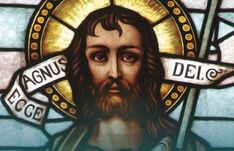 In the modern world of advancement society has brought new innovative ways of impacting the social life of human beings, but unfortunately neglecting their religious life. This has indirectly and explicitly defined our interactions and relationships with one another; thereby almost diminishing our communal life to ever increasing private life with much emphasis on person than community/family. The exercise of free will has been corrupted so our choices, decisions, plans, etc. have become distorted and disappointments. We have simply lost our sense of existence and purpose. This is because we have failed to submit our freewill to the Divine will and deceived ourselves that without the Divine grace we can independently survive and succeed. Nonetheless, this is nothing but a charade and a mirage! We still indispensably need God. Our readings seek to address this transgression of humanity. In the first reading the prophet Ezekiel corrected the notion of the Jews that children inherit the guilt of their ancestors and are punished for their sins. Also, that God was more strict than merciful. God declares personal responsibilities and calls for repentance from sin. Each one is rewarded or punished for their own sins. This is borne out of the use of the free will. However, God’s mercy overrules strict justice and He does not hold our sins against us. He is very fair with us. As Christians we have a decision to make either to obey Him as we choose to do His will, which can give us the reward of Heaven or the otherwise which brings punishments. We can preserve our lives by doing the right and the just. Just be wise with your free will! So, the Psalmist pleads for God’s compassion and clemency against our sins. In the second reading Apostle Paul motivates that we be united/one in mind, in love, in heart, in thinking by looking at other’s interest more than our own. He inspires us to be of same attitude as in Christ Jesus. He draws our attention and focus on Jesus as a model of humility, selflessness and obedience. In effects, he exhorts us to be Christlike in words and deeds. By this, he affirms that if we choose God’s way and will we choose eternal joy and glory. As Christians, our lives must be impactful and influential, worthy of emulation, posing a challenge to others. Jesus Christ, in our gospel reading, teaches a lesson with the story of the two sons. This is a wake-up call to those in position of influence and opportunity, that their current circumstances and positions are no warranty for salvation. Sometimes due to these we are prideful and disobedient to the divine call to repentance. It can be a hindrance to our entry into heaven. However, those we judge to be sinners and wayward upon repenting and obeying Him will win entry to the Kingdom. Indeed, the Kingdom of God is no respecter of position. It is opened to those who are ready and willing to enter. Your key to enter is your free will. Let your choices open the gates for you! ***After one year of serving you in our Tri-Parish faith community, I see myself as a member of this wonderful family. The sense of support, love, care, generosity, charity, friendship and services have not only been amazingly inspiring but also have become a sign of acceptance. As I am officially installed as the substantive PASTOR to take the full possession of the three parishes, I pray for everyone and every family. Let us journey together with FAITH, FRIENDSHIP and LOVE as ONE FAMILY. Pray for me as I also do for you. May the Lord bless you, your families and our Tri-Parish Family. A word of gratitude to all and sundry for every effort played in planning, organizing, preparing, and practicing to ensure a successful program. Deepest appreciations to Bishop Callahan, Fr. Mano and the attendee clergy. Also not forgetting our Tri-Parish staff, PCCWs, ACS teachers, students, parents and staff, parishioners, friends and visitors. May you be rewarded. THANKS. See you in Church… JUST CHOOSE THE WILL & WAY OF GOD… Fr. Emmanuel TWENTY-FIFTH SUNDAY IN ORDINARY TIME “Pray, hope, and don’t worry. Worry is useless. God is merciful and will hear your prayer.”  The effects of the ongoing pandemic have devastated our lives. The challenges are enormous on our shoulders since our economic life, social life, health life, working life, family life and friendship have not been spared. Due to this, fear and panic have gripped our hearts because we do not know what the future holds for us. This unfortunate situation has influenced our religious life: waning our hopes and faith in God. Like the circumstances of the Israelites in our first reading we feel estranged or exiled from ourselves since we are have come to realize how this enemy of humanity (COVID-19 virus) is spreading at a faster rate and we are obliged to follow all the precautions; it’s like we are in the Babylonian captivity where we are thrown into enslavement. Life is simply difficult! Hence, the prophet Isaiah’s message was to motivate the frustrated people to sustain their hopes and keep their faith in God. He reminded them about their years of ignoring their covenant with God which had brought their world crashing down around them leaving their hopes dashed. There was assurance that God had an awesome plan for them. Because of God’s great love, mercy and forgiveness for His chosen people, they would return home, their land would be restored and their relationship with God would be reestablished. So as Christians we should draw our strength and hopes from this message to inspire ourselves that this pandemic will pass over. We need to correct our attitude of indifference towards religion and begin to do the will of God. God still loves us, and He is ever merciful. God is forever near to us, let us be near to Him. Apostle Paul faced with the threat of death, (because he most probably wrote this letter from prison cell in Rome-AD 61-63), expressed his zeal to continue to do the will of God come what may. He intimately indicated the difference between God’s perspective and ours. He refused to state his stance whether to die or to live: his goal was to do the will of God and follow the divine design for his life. He, therefore, becomes an example to how the grace of God operates in our lives. His wishes were subordinates to the needs and service to the people. As Christians we should learn from Paul as to how to live our lives becoming committed witnesses to Christ in our world today regardless of the challenges confronting our lives. Our focus should be on the mission of Christ and our goal should be doing the will of God. Living the grace of God day by day. In conclusion, Jesus in our gospel reading presents the “parable of workers in the vineyard” to portray the generous mercy and justice of God. This manifests that God does not see matters the same way as humans do. God thinks of justice in terms of people’s dignity and their right to a decent life. As Christians we must understand that if God was to treat us justly, none of us will be rewarded because we have been unfaithful to Him in several ways. That is why Jesus Christ died for all humanity to give all equal value. We need to recognize and respect with gratitude God’s amazing grace. There is more to life that the logic of actions and reward. There is generosity of life only God can give. His grace is enough for you, just cooperates! Stay Blessed…. Faith over fear… Keep the faith… See you in church… JUST BY HIS GRACE… FR. EMMANUEL TWENTY-FOURTH SUNDAY IN ORDINARY TIME “Forgiveness is above all a personal choice, a decision of the When the world has grown to be indifferent to religion and treat as disdain morality not only has society succeeded to justify evils but also individuals have unashamedly glorified their sinful deeds. In the contemporary advanced society the emphasis is placed on the rights of the individuals without recourse to the morality for the common good.
As a result of this we hitherto live as enemies to one another because there is more of hatred than love, more of individualism than togetherness, more of personal and private life than family and community life. Due to this, there is unnecessary competitions, seeking to be better than the other, greed, envy, slandering, blackmailing, outwitting, etc amongst us. So the end justifies the means. The product of these includes hurt, disappointments, disparaging, etc Hence, the high rate of vengeance, wrath, anger, hate, unforgiving in our families, relationships and communities. Our readings of today aim at addressing this canker which is progressively but subtly rubbing us of our relationships and joy. The author of the first reading encourages us to desist from vengeful attitude and hatred for our neighbor. He exhorts that remember your last days, death and decay and cease from sin. We should rather obey and practice the commandments of the Lord. We should learn to forgive the injustice of others and offer mercy so that our prayers will be answered. The second reading reminds us that God is the fountainhead of our lives: the origin and the destination. So we have only one life to live: that is, to live according to the will of God but not our own will. This is where our free-will ought to serve the will and the purpose of God. We must live to satisfy the commandments of God but not our own parochial principles. This must reflect in our choices, decisions, deeds and planning. We do what the Lord wills but not with our wishes. In the gospel readings Jesus teaches us about the infinitive nature of forgiveness. Meaning we don’t grow tired of forgiving the sins of our neighbor. Forgiveness is not only a responsibility but also indispensable obligation. Forgiveness is an expression of the divine attributes and mission for humanity that serves as a bridge for interpersonal relationships. We must initiates, nourish and use it as many as possible in our families and communities to sustain solidarity and fraternity. Let FORGIVENESS lead... See you in Church! Fr. Emmanuel TWENTY-THIRD SUNDAY IN ORDINARY TIME “Each of us is the result of a thought of God. One of the unfortunate consequences of our modern world is individualism. The concept of thinking and caring about oneself without paying attention to the circumstances of a neighbor has gradually succeeded to erode our communal life in our families, marital relations, friendship and the society at large. Hence, the prevalence of private life and defense of personal rights without recourse to their consequences to their fellow human beings.
Because of this we sometimes live as if we were enemies to one another, selfish inclinations, breaking the chain of our social life, behaving as if we are independent of one another, sometimes we have created barriers of no trespassing. But no man is an island. We need one another for survival and existence. So, whatever we do as individuals at large has consequential effects directly or indirectly on the other in the society. Our actions, inactions, choices, decisions, planning, etc. should be executed with circumspect. Such is the situation our readings seek to address. So, in the first reading God appointed Ezekiel to be a watchman for the house of Israel. He becomes the mouthpiece of God to warn them against their transgressions from His commandments and moral dangers. If he failed, he was going to be responsible for the death of the sinner. As Christians we must also see ourselves as the “EZEKIELS” in our contemporary society. By our sacramental baptism we are prophets to one another. It is an obligation to give the words of God to people, to challenge and correct them from time to time. We are charged with a responsibility to remain faithful to our prophetic mission, confronting the people with their own sins and waywardness. Therefore, we have a spiritual responsibility and moral accountability for anything that happens in our families, relationships, faith communities and the society. Something we dare not fail, because we will be held accountable for the death of the erring fellow. Just be each other’s keeper! That is why the Psalmist echoes, “If you hear His voice, harden not your hearts.” Therefore, Paul, in the second reading, inspires us that we owe each other nothing but love. Our obedience of the commandments is an expression of our love for our neighbor making us avoid doing evil to them. By this he encourages that love demands that we watch over one another’s souls and it specifies our exercise of watchful care of one another. We need mutual and self-giving love for both physical and spiritual efforts. Christians are obligated to respect that. In conclusion, Jesus Christ teaches about fraternal correction. He draws our attention to the protocols of correction. In His attempt to motivate us to consistently seek to restore and sustain a healthy relationship with our erring fellow, He reminds us about our baptismal responsibilities towards one another whether they sin by omission or commission. He indeed shows us how to deal and finally mend our broken relationship within our families, Christian fellowship, marriages, friendships and communities. Never grow tired of winning your brethren because God has not given up on us yet! To err is human, to forgive is divine. Our forgiveness is an extension and a participation in a divine activity. Let people see the God in you. Forgiveness is a bridge, do not break it! Do not give up on your erring brethren. Just show love. Stay Healthy… Faith over fear… Keep the faith… Let us meet to worship the Lord… Let us live in PEACE but not in PIECES… FR. EMMANUEL TWENTY-SECOND SUNDAY IN ORDINARY TIME "Take care into whose hands you entrust yourself, 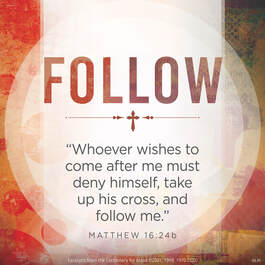 As society advances and modernity takes over, we are baffled with the challenging situation of secularism, materialism, individualism and independency. Due to these consequences, the concept of discipleship has been either twisted or seen as an archaic endeavor. So, the idea of “Master-Servant” (discipleship) is unfortunately misconstrued as subservient or submissiveness: and wrongly tagged as human rights abuse. For this reason, Christians in our contemporary epoch have lost the connectivity between their identity as Christians and the call to discipleship. Most of them are not deeply rooted in their faith so at the slightest glitch in their life they abandon their faith entirely. Thus, our readings aim at reminding Christians to appreciate the value and the characteristics of true discipleship. Every Christian must understand that he or she is a disciple of Jesus Christ, the Son of God. In Christian discipleship you develop self-control (deny yourself), perseverance (willingness to suffer), obedience/discernment (readiness to follow) and sacrifice (generosity in surrendering our lives to God). In our first reading the prophet Jeremiah (650 B.C.-580 B.C.) complained bitterly to God. He was regarded by his own people as a traitor because his prophecies were misconstrued as bringing woes to them. But his aim was to keep them faithful to Yahweh (God). He suffered for obedience to his conscience. As a Christian, sometimes you are like Jeremiah. Sometimes due to what you stand for friends and even family members may be mean towards you because you do not promote their interests. You also may feel disappointed in God for allowing certain things to happen to you in your fidelity to Him. Yes! as human as you are, it is a natural sentiment, but this should not deter/discourage you from focusing on your mission and vision. A true disciple never gives up! God has not given up on you yet. Draw strength from the Psalmist, “O God, you are my God whom I seek…you are my help… My soul clings fast to you: Your right hand upholds me.” - Psalm 63:3-4, 8-9 The Apostle Paul in our second reading admonishes us to offer ourselves as sacrifice to God. He encourages us to discern well and aim at doing the will of God. By this he means that our attitudes and way of life must differ from the contemporary culture of indifference toward religion, secularism, materialism and amoral behaviors. However, our non-conformity to the prevailing and trending culture will cost us suffering and hardships. It is part of true discipleship. Finally, Jesus Christ, in our gospel reading, rebuked Peter for trying to prevent Him from dying. So, He explained the Messianic Mission and the Responsive Discipleship to His apostles. As human as we are, there are many times we have failed to fathom the Divine plan and the concept of true discipleship. We have taken actions, choices and decisions that we realized later on were not the will of God. Therefore, as Christians we must accept that we are disciples. We must be ready to deny ourselves (sacrifice/discernment), take up our cross (obedience/fidelity) and follow our Master - Jesus Christ (conformity/commitment). We warmly welcome our Assumption Catholic School teachers, students and staff back to school in person. We love you! STAND FIRM… BE FOCUSED… FAITH OVER FEAR… Stay Healthy… PRAY... Keep the Faith…Enjoy the Sun/Heat…See you in Church… Just be a DISCIPLE… Fr. Emmanuel |
Fr. EmmanuelFr. Emmanuel hails from Ghana and is passionate about the Gospel and bringing the love of Christ to all people. He speaks several languages, enjoys soccer and cooking, and loves St. Francis of Assisi. Archives
April 2021
Categories |
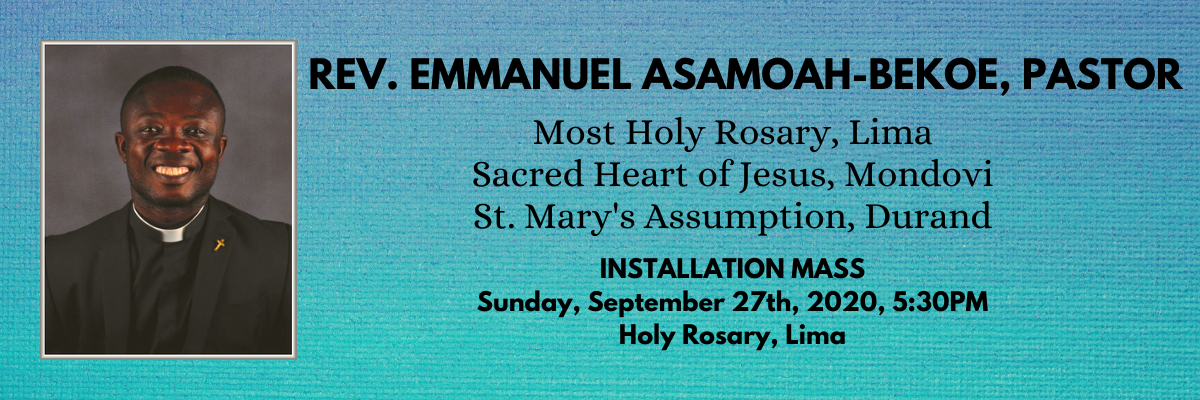
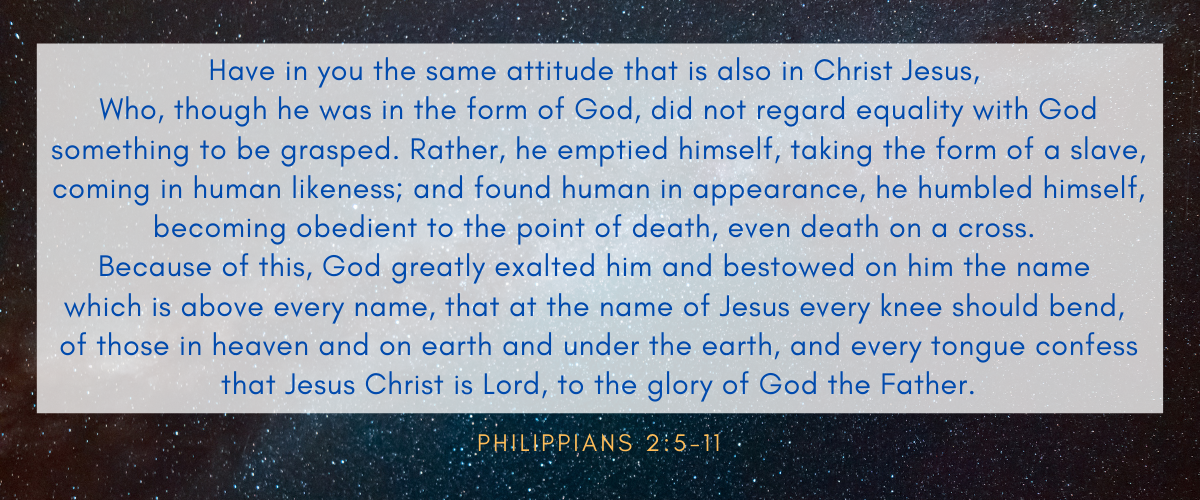



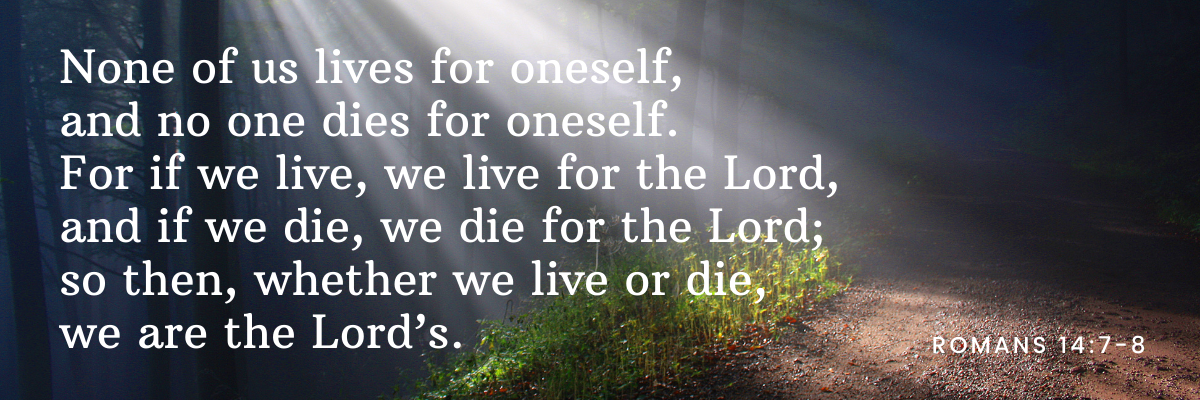
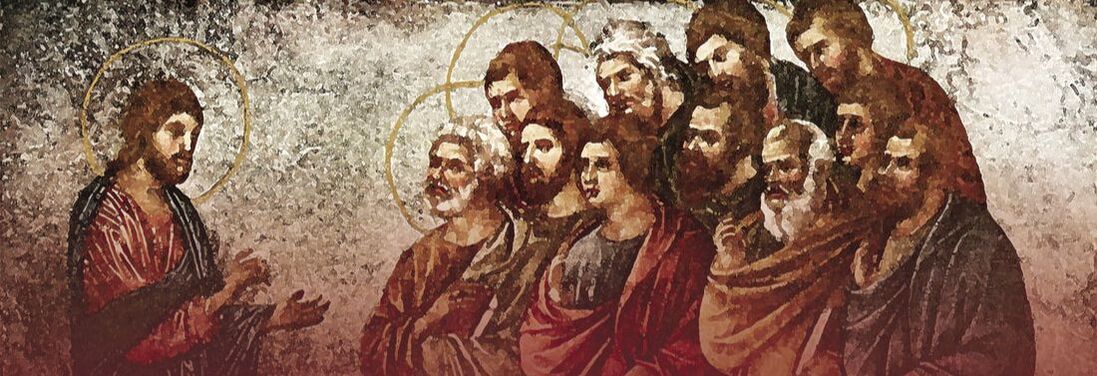
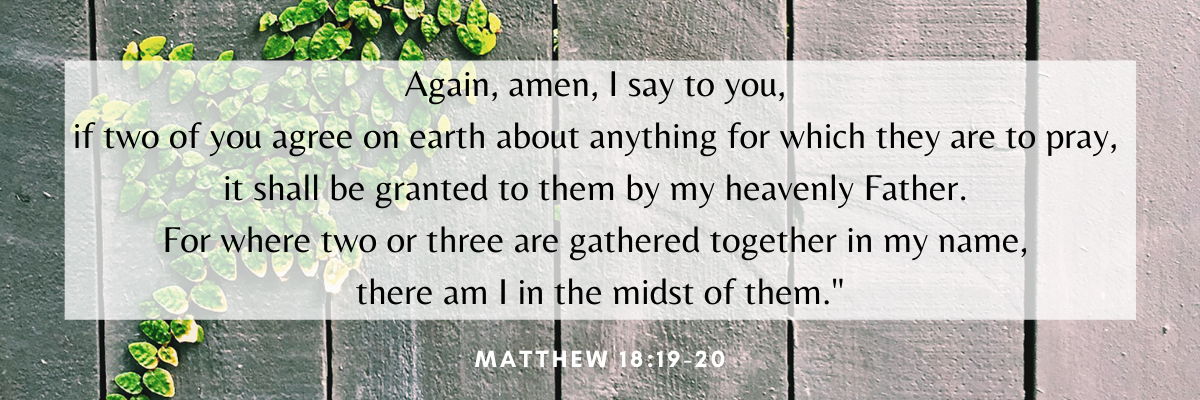
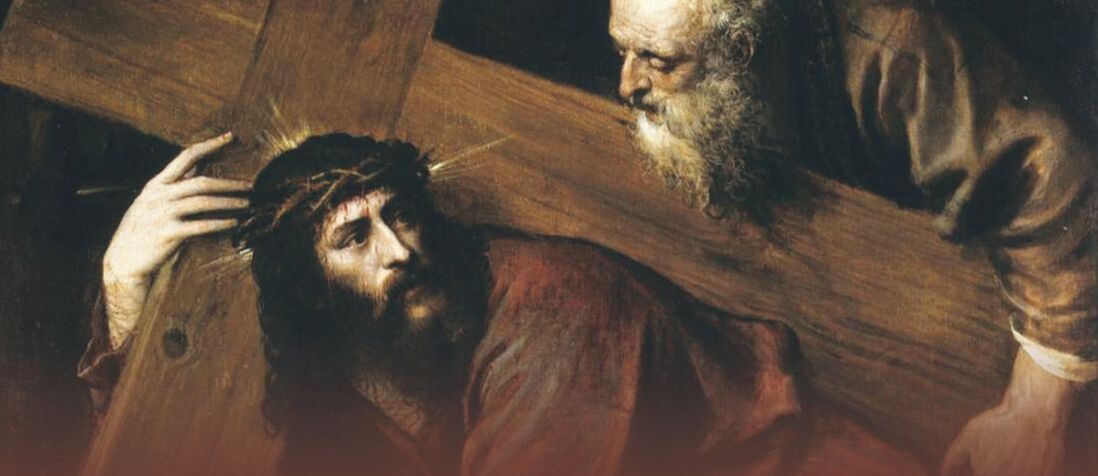
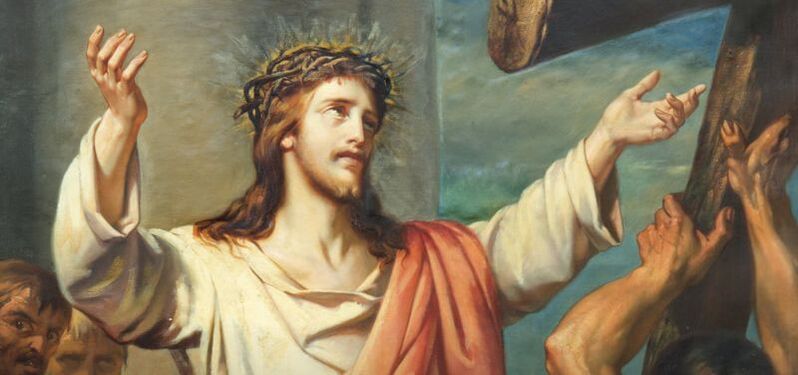
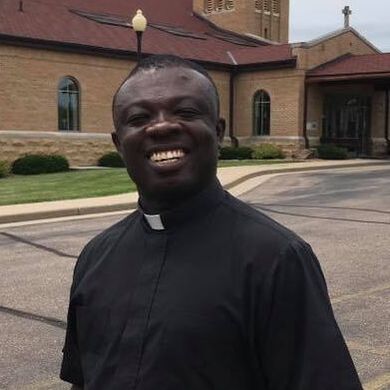
 RSS Feed
RSS Feed